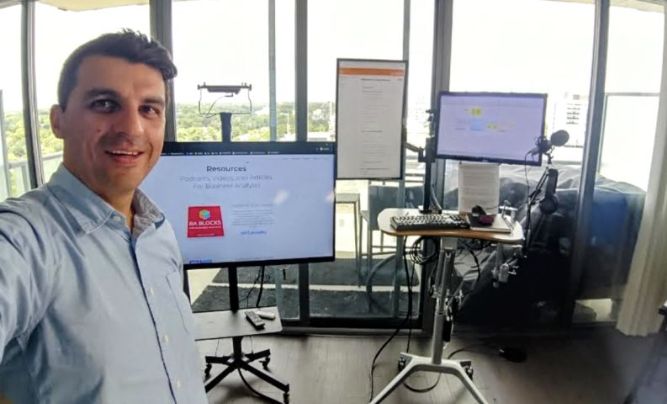There are many risks in career development, but no risk is greater than spending thousands of dollars with the wrong training provider. This article gives you 5 things to look for when choosing a BA training program.
I Learned the Hard Way, But You Dont Have To
I've purchased and taken a BA training program in the past that I refuse to put on my resume. My experience in taking the course was so bad that I don't believe it deserves to be listed on my resume along with all the good training that I've completed.
In short, the company misled me about the skills I needed, had terribly inexperienced instructors who could not go beyond the textbook, and refused to refund me when I expressed my dissatisfaction with my experience.
That was a pivotal moment in my life because I realized that not all training providers feel the duty to serve their students and that the BA training space is full of marketers using low-integrity sales tactics, and legalese to keep their business alive.
I learned a lot from getting burned, and I remember the terrible feeling of getting ripped off and feeling powerless about it. Since then I've become very good at distinguishing between good and low-quality programs to make sure I never make the the same mistake twice.
I often look for 5 things when I'm looking for good training, and in this article, I share these as 5 tips for you to consider when shopping for your own training programs.

1. Curriculum
Does the program cover the skills that you need?
Business analysis isn't about writing user stories, use cases, and data models. We do many pre-project activities to find the business needs. Then, we use our toolset to elaborate on those needs.
Does the program you're considering cover business analysis with a holistic curriculum? Or, are they just teaching you one-off skills in a fragmented way?
2. Learning & Development Strategy
Does the program give you all the resources and support you need? Or, do they just give you access to materials expecting you to do all the heavy lifting for your learning?
A good program should be case-based. It should let you job-shadow other analysts on a project (simulated or real). It must include live workshops, office hours, video lessons, sample docs, and post-course support.
3. Experienced Instructors
How much "boots on the ground" business analysis experience do the instructors have? The BA training space is littered with marketers. They've learned to "talk the talk" about business analysis. Yet, they have little to no real-world BA experience to tap into to teach their students.
Have you checked the instructor's project history? Or, do you just accept their word that they are business analysts?
4. Customer Friendly Policies
Does the program treat its students well? Or, do they use sneaky sales tactics and legal jargon to trap students in a low-quality program?
A good program has a generous refund policy. It does not hide its restrictions in the fine print. It uses plain language, not legalese. It does not bind students into situations they would otherwise avoid.
Have you read the refund policy? Are you sure you're not legally bound to say only positive things about your experience under the threat of legal action?
5. Prices
Is the program outrageously overpriced in comparison to what it teaches? A good program does all it can to reduce prices for its students instead of pressuring them to make bad financial decisions.
If you don't have time to research all this on your own, then consider piggybacking off our research in this area.
We collect data on many BA training programs for our internal benchmarking activities. We publish some of our data to give students a leg up on their comparison shopping.
The Takeaways
-
The program must fully cover business analysis. It should go beyond basic tasks and include pre-project activities at the very least.
-
Choose programs with experienced instructors. They should offer live sessions and real-world projects. Fair Practices and Pricing: Choose programs with clear policies and fair prices. Avoid those that use deceptive sales tactics or overcharge.
Being misled and feeling powerless about it is a terrible feeling for anyone to experience. That's why we offer the most generous refund policy of any business analysis training program in existence today. You can sign up, attend, get access to the materials, attend the first lecture, ask all your questions, and still be eligible for a refund.

About the Author
Emal Bariali is a seasoned business analysis professional with 20+ projects executed since starting his BA career in 2005.
Emal increased his yearly business analysis income fivefold between 2005 and 2022 by enhancing his BA skills and transitioning to BA consulting.


Thank you for sharing this insightful blog! The points you’ve mentioned are extremely helpful for anyone looking to choose a quality Business Analysis training program. I especially appreciate the emphasis on practical skills, accreditation, and continuous learning
You’re very welcome! Glad that you found the article helpful.